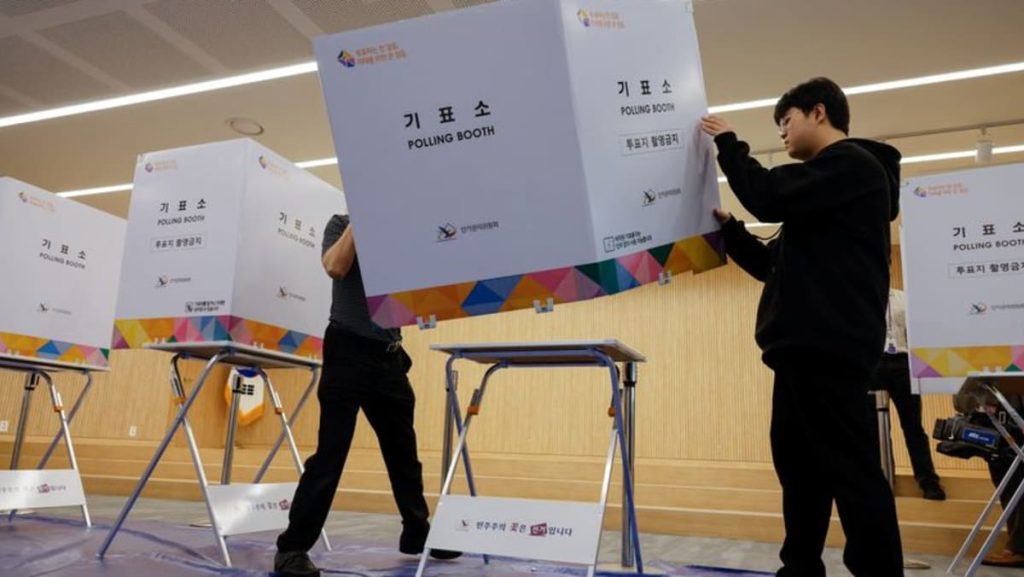Elections in South Korea are typically dominated by two major parties, the ruling People Power Party and the opposition Democratic Party. However, many Korean voters disillusioned with traditional politics are turning to alternative parties, particularly the Rebuilding Korea Party. This party was recently launched by former justice minister Cho Kuk, who has faced legal troubles in the past but is awaiting a decision from the Supreme Court. There are concerns that if Cho Kuk’s party gains enough votes, it could ally with the Democratic Party, potentially preventing the ruling People Power Party from maintaining a majority in parliament.
During a briefing with foreign media, Cho Kuk expressed his aim to weaken the current government and potentially impeach the incumbent president, Mr Yoon. Cho Kuk’s statements indicate a desire to make Mr Yoon politically incapacitated, highlighting the potential power shift that could occur in the upcoming election. Experts believe that swing voters, particularly those in their 20s and 30s, will play a crucial role in determining the election outcome. These voters are considering factors such as regional development, investment, and the distribution of power among political parties when deciding who to support.
One young voter emphasized the importance of equalizing development between the capital region and the provinces, highlighting a desire for more investment and cultural facilities in their local area. Another voter expressed concerns about the concentration of power in one party, suggesting that a balance of power is necessary to prevent any party from acting without oversight. These perspectives reflect the diversity of opinions among young voters who are pivotal in shaping the political landscape in South Korea.
The emergence of alternative parties like the Rebuilding Korea Party signals a shift away from the traditional two-party system that has long dominated South Korean politics. Cho Kuk’s ability to mobilize support despite his legal challenges speaks to the growing discontent with the status quo and the desire for change among voters. The upcoming election will test the strength of these alternative parties and their ability to challenge the established political order.
The potential alliance between the Rebuilding Korea Party and the Democratic Party poses a threat to the ruling People Power Party’s hold on power, raising the stakes for the upcoming election. The outcome of the election will have significant implications for the future of South Korean politics and governance, potentially reshaping the balance of power in parliament and influencing key policy decisions. The engagement of young voters and their perspectives on issues such as regional development and political power distribution will be crucial in shaping the election results and determining the direction of the country’s political landscape.
Overall, the increasing support for alternative parties and the shifting dynamics in South Korean politics suggest a growing willingness among voters to explore new political options and challenge the traditional establishment. The upcoming election will provide a platform for these alternative parties to demonstrate their appeal and potentially reshape the political landscape in South Korea. As voters consider their choices and weigh the implications of their decisions, the role of swing voters and the outcomes of the election will be closely watched both domestically and internationally.















